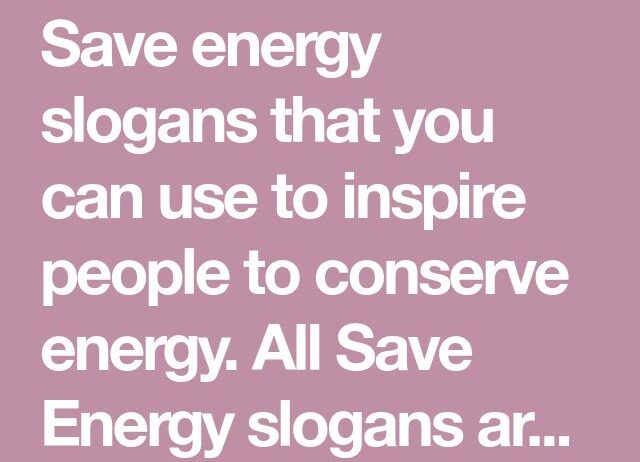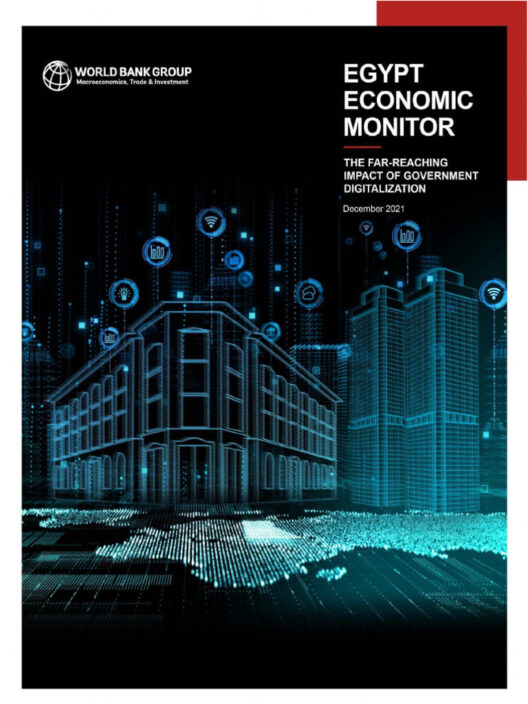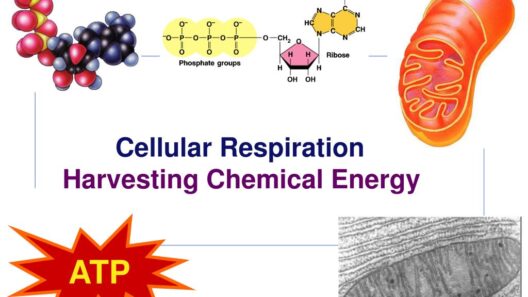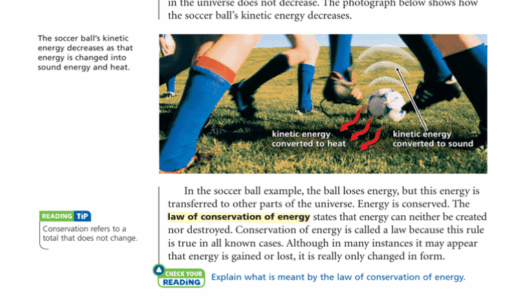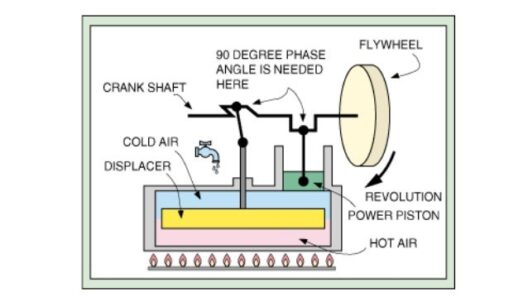Energy conservation is an indispensable strategy in combatting climate change and ensuring sustainable development. As the global population continues to rise and technological demands escalate, the pressing need for efficient energy use becomes increasingly apparent. A shift in perspective regarding energy consumption can spark monumental change—change that each individual can contribute to. Words have power, and slogans can ignite a spark of curiosity and inspire collective actions toward conserving valuable energy resources.
To begin with, understanding the various forms of energy consumption is paramount. From electricity in our homes to gasoline in our vehicles, the array of resources we utilize daily have differing impacts on our environment. Fossil fuels, which are the primary source of energy for most countries, emit greenhouse gases that contribute to global warming. Transitioning to cleaner, renewable energy sources—such as solar, wind, and hydroelectric power—can significantly mitigate environmental repercussions.
Beyond simply shifting the types of energy we use, employing effective strategies for energy conservation presents an additional opportunity for reducing our carbon footprint. This includes being mindful of how we consume energy in our daily lives. Simple actions, such as turning off lights when exiting a room, utilizing energy-efficient appliances, or adjusting thermostats, can lead to substantial energy savings over time. Encouraging awareness and engagement in these practices can seamlessly intertwine with the art of slogan creation.
Effective slogans serve as poignant reminders, motivating people to reflect on their energy consumption patterns. Slogans that resonate deeply can induce introspection, prompting individuals to inquire about their own habits. Examples such as “Save Energy, Save Tomorrow” or “Every Watt Counts” succinctly encapsulate the urgency for conservation, inviting contemplation and action. Through catchy phrases or thought-provoking commentary, these slogans usher in profound shifts in public consciousness and behavior.
A well-crafted slogan can also mobilize the community. Incorporating slogans into local campaigns can galvanize collective efforts for energy conservation. For instance, schools can initiate challenges that encourage students to reduce energy use at home, promoting participation with persuasive phrases like “Use It Wisely, Save the Planet.” Such initiatives create a strong sense of community for participants, as individuals rally around shared goals, fostering camaraderie while simultaneously addressing environmental challenges.
Moreover, digital platforms offer a promising avenue for amplifying energy conservation initiatives. In an age where social media is ubiquitous, creating eye-catching and sharable content can exponentially broaden the reach of conservation movements. For public campaigns, slogans such as “Do Your Part—Conserve Energy and Lower Your Bill!” can leverage economic incentives, simultaneously engaging audiences with the allure of cost savings. This dual appeal fosters an expansive understanding of the personal impact individuals can have, intertwining financial and environmental benefits.
In addition to grassroots initiatives, businesses play an instrumental role in energy conservation efforts. Corporations can adopt sustainability practices, reducing their energy consumption and minimizing waste. The implementation of slogans tailored for the corporate environment, like “Efficiency is Key—Save Energy for Profitability” resonates not only with employees but also with stakeholders and consumers. Businesses that prioritize sustainability are often viewed more favorably, enhancing their reputation while contributing positively to environmental stewardship.
Engaging the youth in conversations about energy efficiency is crucial for ensuring long-term changes. They are, after all, the leaders of tomorrow. Slogans that appeal to younger demographics, such as “Be a Hero—Save Power!” or “Your Choices Matter—Conserve for the Future!” can inspire action and instill a sense of responsibility early on. Implementing educational programs and workshops that utilize these slogans can nurture a culture of energy awareness within the younger generation, promoting sustainable habits that endure into adulthood.
The repetition of impactful slogans can serve to normalize energy-efficient practices, making them part of everyday life. When people consistently encounter these phrases, they can become ingrained in collective consciousness. Slogans like “Turn It Off—When You’re Gone, It’s Just Wasted” can become synonymous with responsible behavior, reinforcing the concept that energy conservation is not merely an option but rather a necessity. The power of repetition consolidates energy conservation as a core value, requiring less conscious effort from individuals to remember its importance.
Ultimately, the movement for energy conservation is a collaborative endeavor that spans individuals, communities, businesses, and governments alike. When the ethos of energy conservation is communicated effectively through creative slogans, it can catalyze a broad spectrum of change. Such slogans not only inform but also empower, making the complex issue of energy usage relatable and actionable. The cumulative effect of each conscious decision to conserve energy can lead to significant reductions in overall consumption, resulting in a positive impact on climate change.
In conclusion, energy conservation is not just about the actions we take individually; it’s about cultivating a mindset that prioritizes sustainable living. Slogans serve as catalysts for change, facilitating discussions around energy disciplines that encourage collective commitment. Each phrase has the potential to ignite curiosity, prompting individuals to reassess their habits while reinforcing the idea that even the smallest change can yield profound results. By promoting slogans that inspire energy conservation, we can empower ourselves and others to save energy resources—not just today, but for the generations yet to come.



